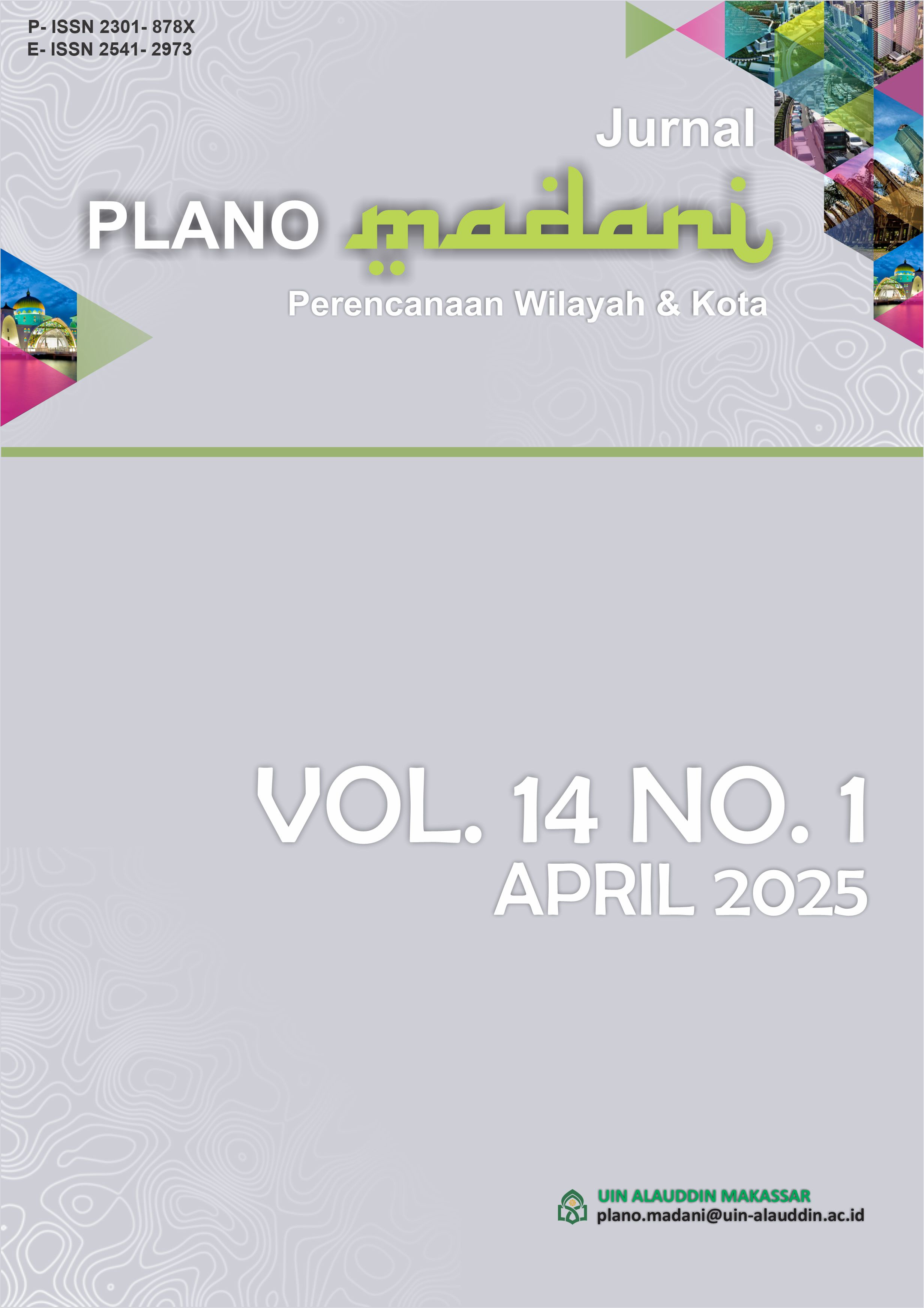EXPLORING THE MACROCOSMIC PERSPECTIVE OF THE BAYAN INDIGENOUS COMMUNITY IN BAYAN DISTRICT, NORTH LOMBOK
Keywords:
macrocosmic, indigenous community, Bayan customary areaAbstract
The Bayan customary community in North Lombok utilizes traditional knowledge systems, including awig-awig, to govern natural resources and sustain environmental harmony, grounded in concepts like Wetu Telu and shaped by Balinese culture. Despite the obstacles of industrialization, Indigenous and Local Knowledge (ILK) is essential for sustainable spatial planning, necessitating extensive research to bolster governmental initiatives. This study was executed in the Bayan sub-district of North Lombok, commencing with interviews of Pemangku Adat and Pembekel, subsequently followed by focus group discussions and participatory mapping. The investigation was performed using both spatial and non-spatial methods to elucidate the relationship between local knowledge and geographical characteristics. The Bayan customary people possess a concept of Indigenous Local Knowledge (ILK) that has been transmitted through generations to carefully manage their environment by delineating daya (mountain) and lauq (coastal) areas, overseen by perumbak, symbolizing harmony between the mountain and the sea. The connection between perumbak, daya, and lauq symbolizes the balance between a man and a woman, who collectively safeguard the source of life and defend their customary region from adverse external forces in the macrocosm.
Downloads
References
Artanegera. (2018, Maret 5). Zonasi Masjid Bayan Beleq. Retrieved from Balai Pelestarian Cagar Budaya Provinsi Bali, Wilayah Kerja Prov. Bali, NTB, dan NTT: https://kebudayaan.kemdikbud.go.id/bpcbbali/zonasi-masjid-bayan-beleq/
Bauder, H., & Mueller, R. (2023). Westphalian vs. indigenous sovereignty: Challenging colonial territorial governance. Geopolitics, 156-173.
Burke, L., Díaz-Reviriego, I., Lam, D. P., & Hanspach, J. (2023). Indigenous and local knowledge in biocultural approaches to sustainability: a review of the literature in Spanish. Ecosystems and people , 56-62.
Harnish, D. (2021). Change and identity in the music cultures of Lombok, Indonesia. Leiden: Brill.
Jamaluddin. (2011). Islam Sasak: Sejarah Sosial Keagamaan Di Lombok (Abad XVI-XIX). Jurnal Indo-Islamika, 63-88.
Kardi, C., & Pratiwi, N. P. (2024). Development of Kaja-Kelod Agro-Tourism on an Eco-Friendly Base in Buleleng Regency. Indonesian Interdisciplinary Journal of Sharia Economics (IIJSE) , 5108-5122.
Komarudin, D., & Muliadi. (2019). Simbol Budaya Agama Islam Wetu Telu. Bandung: LP2M UIN Bandung.
Tramdheni, A. F., Suana, I. W., & Sukenti, K. (2023). The Wisdom of The Bayan Indigenous Community in Conserving The Traditional Forest in North Lombok, Indonesia. Jurnal Biologi Tropis, 700-705.
Zuhdi, M. H. (2018). Wetu Telu in Bayan Lombok: Dialectic of Islam and Local Culture. Kawalu: Journal of Local Culture, 5(2).
Downloads
Published
How to Cite
Issue
Section
License
Copyright (c) 2025 Fadhil Surur, Hideo Shiraishi

This work is licensed under a Creative Commons Attribution-NonCommercial-ShareAlike 4.0 International License.
By Submitting your manuscript to our journal, your are following Copyright & License








